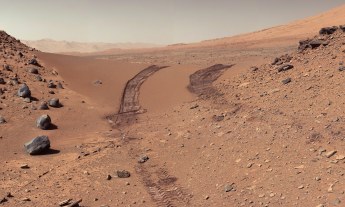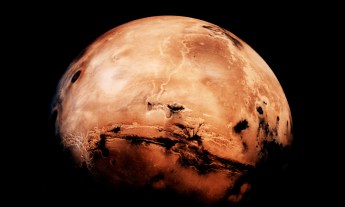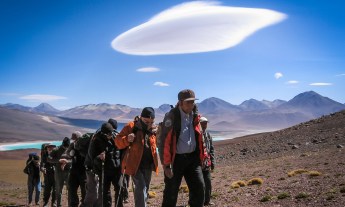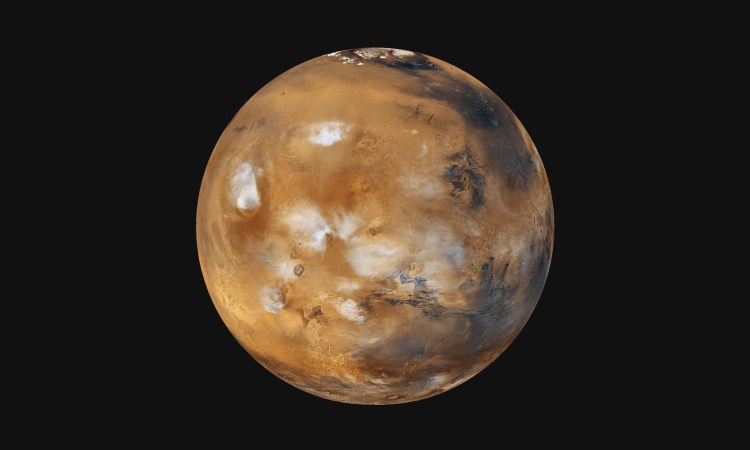
Since Johannes Kepler used Mars to explain the organization of the cosmos back in the 17th century, people have been royally obsessed with the Red Planet. And with the announcement that there’s running water on the planet, it seems we’re not getting over the fascination any time soon. Here, two confessed super-fans, Andy Weir, author of the book and film The Martian, and Stephen Petranek, author of the TED Book, How We’ll Live on Mars, share thoughts on why being Mars-mad is a reasonable state of mind.
Mars, Mars, Mars. Why everyone keeps talking about Mars. Weir’s film is certainly one reason Mars is front and center in the zeitgeist. So let’s blame him for a little of the current hoopla. And why does he care so much? Because what we do know about Mars is crazy. “I’ve been a lifelong fan of space and space travel. So I don’t remember a time when I wasn’t interested in Mars. It’s endlessly fascinating,” he says. “For instance: The largest mountain in the solar system is Olympus Mons on Mars. It’s three times the height of Mount Everest. But it is also very wide. The base is about the size of Arizona. This means the actual grade, the steepness of the land, is so subtle that the curvature of Mars has a larger effect than the grade of the terrain. So if you were on Olympus Mons and looked all around you, you would think you were standing on a perfectly flat plain.”
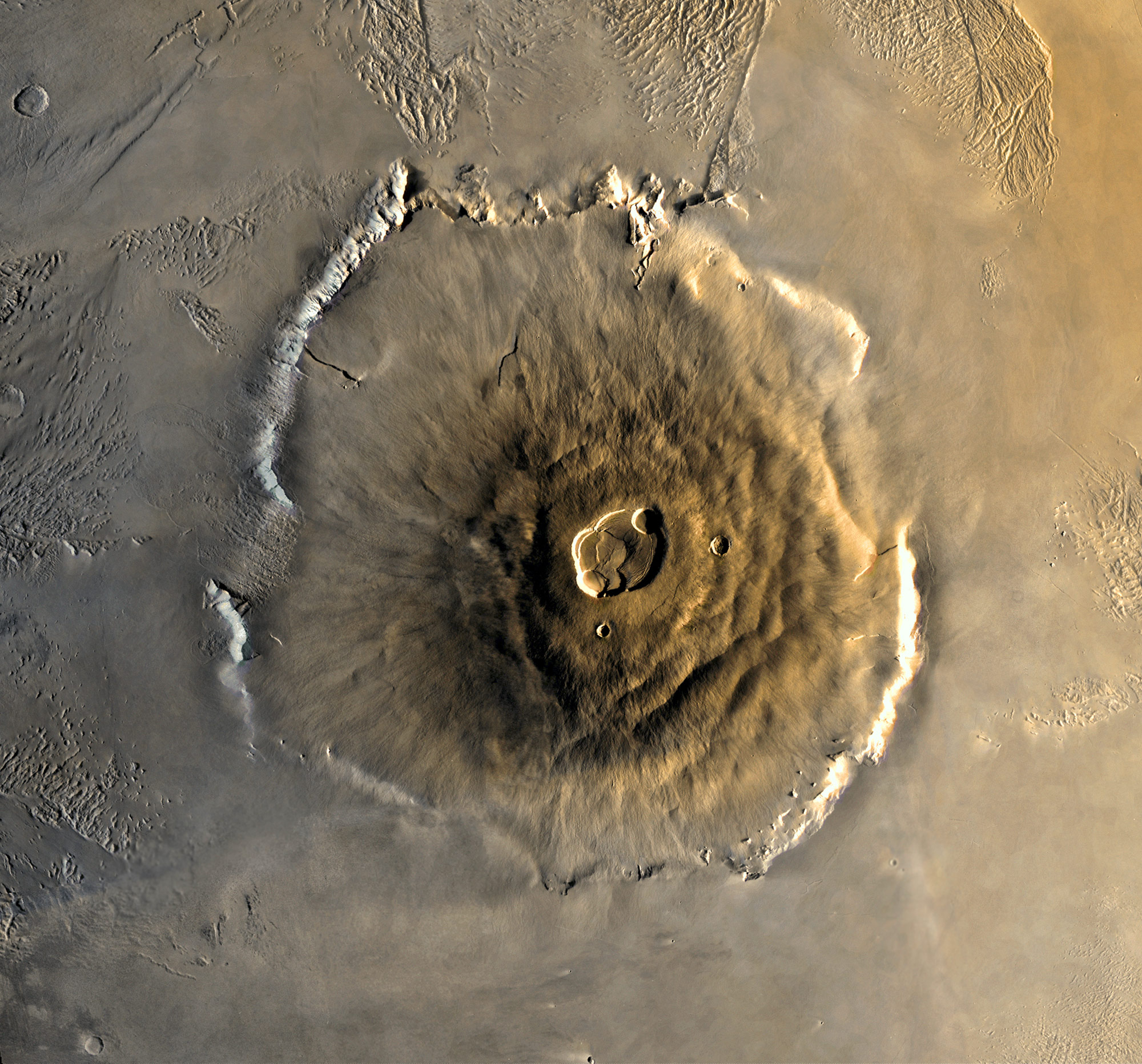
What to make of the recent announcement about water on Mars. “NASA’s announcement means there’s a tangible place to look for evidence of life on Mars,” says Weir. “It’s pretty exciting.” Nonetheless, as Petranek points out, there’s no reason to get too giddy; the news is confirmation of previous suggestions that Mars has seasonal water flows. “Careful observers of research from Mars orbiters were not in the least surprised by the announcement from NASA,” he says. “Furthermore, we know there is lots of water ice at the poles, lots of water bound up in the Martian soil as ice, and that there are entire glaciers of ice covered by a thin layer of dust.” What’s perhaps been missed in the excitement at any water on Mars is that actually, there might be a whole load of it there. “Jim Green, director of planetary science at NASA, told me last month over coffee that ‘Mars is loaded with water. There is an incredible amount of water on the planet,’” says Petranek.
“right now humanity has all her eggs in one basket. Once we colonize another world, our odds of extinction drop to effectively zero.” Andy Weir, The Martian
Shouldn’t we do our very best to protect Earth and stop talking about how Mars might provide a new home for humans? Well, yes and no. “I believe we should have a self-sufficient human population somewhere other than Earth,” says Weir. “So long as our entire species is on one planet, we have a chance of going extinct. It could be an asteroid, a virus, a war, or something we haven’t even imagined. But right now humanity has all her eggs in one basket. Once we colonize another world, our odds of extinction drop to effectively zero.” And why Mars, in particular? Turns out, it’s an ideal candidate precisely because it contains carbon dioxide, nitrogen and, now confirmed, liquid water. ”That, plus human waste, is all you need to grow crops and maintain a population. And it would allow that population to grow their colony indefinitely,” says Weir, who believes that when it comes to the future of mankind, it’s better to be safe than sorry: “25 years as a computer programmer has taught me the value of backing things up.” Adds Petranek: “Humans cannot survive as a species indefinitely on Earth. If nothing else happens, eventually our sun will begin to die and will throw Earth out of its orbit. If we do not become a space-faring species, we will go extinct. And our space exploration has to become sophisticated enough to travel beyond our own solar system, so the sooner we start the better.”
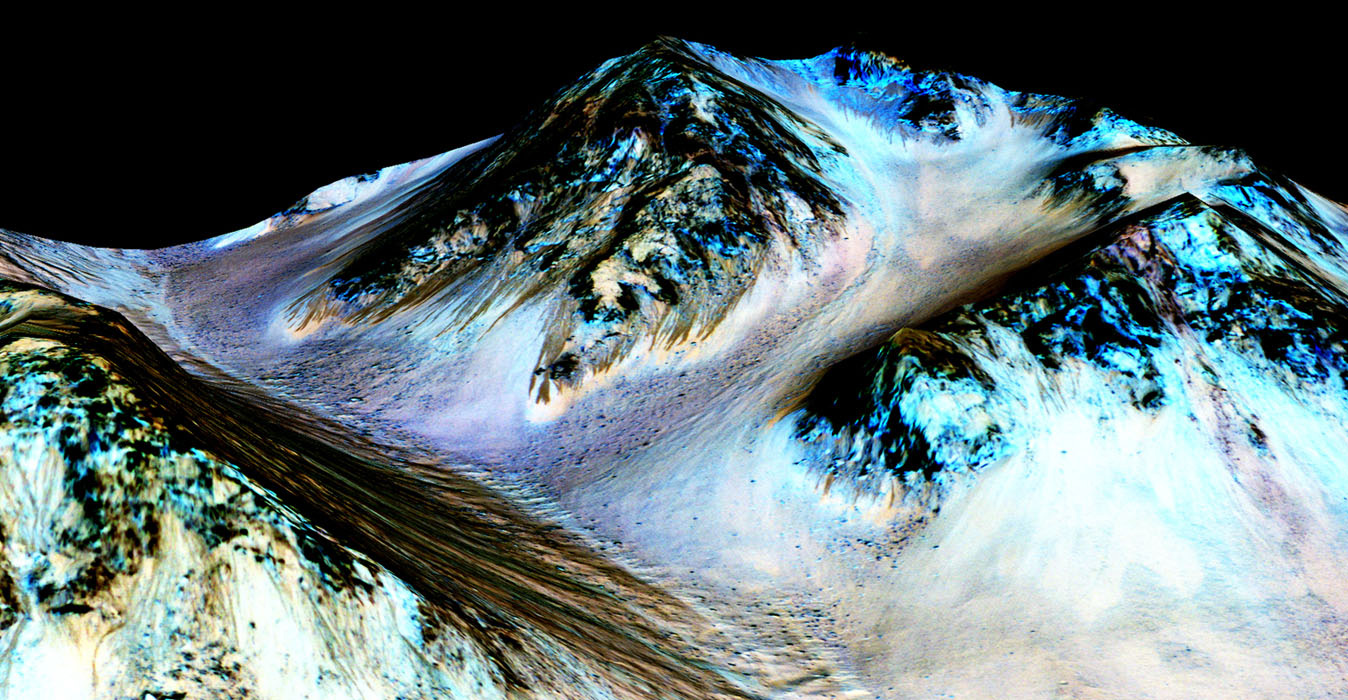
But even with the discovery of water, Mars is still currently uninhabitable by humans. Right? Right. “The terrain of Mars is bizarre by Earth’s standards and more fascinating than any other planet in our solar system,” says Petranek. “Elon Musk recently suggested we could warm the planet up and get lots of water flowing by setting off a number of atomic bombs at the poles. I think that could be an irresponsible approach; I also find it a bit frightening that human genetics will be incorporated to change people as quickly as possible so they can adapt better to conditions on Mars. We will purposely create Martians who may eventually be unable to live and breathe on Earth. But the re-engineering of Mars draws upon all the intelligence we can muster.”
So. The key question: To boldly go to Mars — or not? “Frankly, I would go in a second,” says Petranek. “I cannot imagine a greater and more meaningful adventure, nor a more interesting opportunity. Exploring an alien world never before seen by humans would be mind-blowing. It’s the beginning of the most significant break in the history of humanity.” Weir? He’s not into it. “Nope!” he says flatly. “I write about brave people, I’m not one of them.”
Featured photo by NASA.









